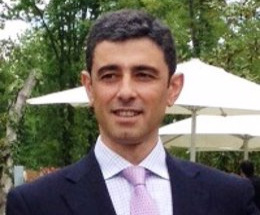The man interested in the job of protecting the Northwest's air and water under President Donald Trump makes quick work of some bedrock tenets of the modern-day environmental movement.
The scientific consensus on human-caused climate change? "There definitely could be an impact from humans on climate," said Washington state Sen. Doug Ericksen. "Is it as big as people say? We'll find out."
The environmental campaign to keep oil in the ground? "Not a realistic thing to talk about."
The work of the U.S. Environmental Protection Agency? It raises "the cost of operations so high that too many businesses are closing and too few new businesses are opening up."
Ericksen, a long-time Republican legislator from Ferndale and early Trump supporter, is now poised to run the federal environmental agency's 525-employee Seattle office.
Nothing has been offered, he said, but Ericksen has a 120-day job with the agency during the transition and has publicly acknowledged that he's willing to become regional administrator if Trump asks.
If he does, a climate change skeptic strongly supported by the oil industry would be in charge of overseeing the Northwest's most prominent environmental watchdog, setting up a showdown between career scientists and a politician who's attacked their work.
In his brief time at EPA headquarters, he has stoked nationwide concerns about the agency's integrity, telling NPR that scientists' work will be internally vetted on a case-by-case basis before being released. The agency's internal policies, adopted during the Obama administration, prohibit its leaders from altering, suppressing or impeding the timely release of scientific papers.
"New science will be allowed in," he said in a recent press conference. "More people will have a voice when it comes to debating the science of issues at the EPA."
Ericksen is eyeing a position that matters for the environment in Oregon and the Northwest. Employees in the agency's Seattle headquarters and Portland field office have overseen the agreement on the $1 billion Portland Harbor Superfund cleanup. They have studied the risks of building the Pebble Mine, what would be North America's largest open-pit mine, in an Alaska watershed home to the world's largest sockeye salmon run.
Jared Blumenfeld, a former EPA regional administrator in California who is still in touch with people inside the agency, said Ericksen has been delivering a clear message within the agency.
"Doug's point to staff is, 'Everything is on the chopping block,'" Blumenfeld said.
In a brief interview this week, Ericksen dodged most questions about how he thinks the EPA needs to change - after acknowledging up front that he didn't plan to address them.
"You're not going to like my answers," Ericksen told The Oregonian/OregonLive.
The agency made at least one cut this week, halving the number of employees it planned to send to an Alaskan environmental conference this week.
Ericksen described the move to a newspaper there as a small example of how EPA "will be working cooperatively with our staff" to save taxpayer money.
For a sense of how dramatically Ericksen's appointment could alter the EPA's role in the Pacific Northwest, consider the position Ericksen currently occupies in the agency's office in Washington, D.C.
He is one of 10 members of what the Trump administration calls a "beachhead team." A beachhead is a position established by invading troops on an enemy shore.
Blumenfeld said the transition Ericksen is helping to steer is not ordinary. Agency employees have told Blumenfeld they haven't just been ordered to stop using Twitter and Facebook, but also to halt publications as innocuous as community newsletters updating residents about work on nearby Superfund cleanups.
"Some of the stuff they're telling me they stopped sending out I didn't even know we did send out," Blumenfeld said.
Ericksen's salary is unclear. He said he doesn't know how much he's being paid. "I'll get paid eventually I hope," he said.
In Washington state, where the legislature is in session, Ericksen remains the senate's tie-breaking vote. In the other Washington, he's the temporary communications director at the EPA at a time when the agency has halted most communication, going silent on social media.
The legal boundaries of his work in the nation's capital are murky.
Ericksen said he's been approved by the EPA's ethics office to work on communication, not policy. But he wouldn't release their written opinion saying so. "We can release that at some point," he said. "Not today."
Holding down both his legislative job and one at EPA has brought intense criticism. Washington state Democrats say he's hampering the legislative session because the Republican majority doesn't want to vote without him. He missed 75 percent of committee meetings, according to a Bellingham Herald analysis.
Ericksen has pledged to immediately resign his legislative seat if he's offered a full-time role with any federal government agency. He said he's interested not just in the possibility of working at the EPA but also the Agriculture Department or Interior Department.
What's he doing on a daily basis at EPA headquarters? "It's a lot of work with the people who are currently there," he told The Oregonian/OregonLive.
Can you be more specific?
"We're working with career professionals to keep the lights on."
Ericksen, 48, is a self-described advocate of states' rights and limited government "without the burden of the bureaucracy placed upon you," he said in 2014. He worked in state government before being elected to the Washington House of Representatives in 1998.
He represents rural Whatcom County, on the Canadian border, home to two oil refineries (BP and Phillips 66) and an aluminum smelter (Alcoa). He is an unapologetic supporter of those industries, describing his role as protecting their well-paying jobs. A 2015 Sightline Institute analysis found that Ericksen was the legislature's No. 3 recipient of donations from coal, oil and gas companies.
He proposes legislation that would benefit those industries. This session, Ericksen has attracted attention for a bill that would make it a felony to impede any economic activity while protesting.
Ericksen said in a radio interview that the bill is also designed to target people who support protesters like those that have blocked oil trains. He singled out billionaire hedge fund managers George Soros and Tom Steyer, both funders of climate change advocacy, as well as progressive public policy groups including Move On and Fuse Washington. Steyer helped fund a 2014 effort to unseat Ericksen that failed by a wide 59-41 margin.
Ericksen is savvy about the way he sows doubt about climate change. The Cornell graduate isn't a soapbox preacher, cherry-picking data to rail against the overwhelming scientific consensus that humans are warming the planet. Instead, he gives a public platform to people who deny humans are causing climate change. He repeatedly has invited them to testify in the environment committee he leads, while avoiding definitive statements about his own opinions.
When he brought a Western Washington University professor to testify before his committee in 2013, Ericksen called it "a learning opportunity." The geologist, Don Easterbrook, told lawmakers that global warming ended in 1998. (It didn't. Last year was the hottest on record, surpassing the record set a year earlier.)
When Ericksen invited a blogger who denies the existence of climate change to testify Feb. 7 at a Washington senate hearing, Ericksen joined in briefly by phone from Washington, D.C., saying the testimony was "extremely timely."
The man who previously led the office Ericksen is eyeing, Dennis McLerran, came from the local agency that regulates air pollution in Seattle, where he earned acclaim for his work in cleaning up dirty diesel.
The next leader will inherit wide authority over a $300 million budget that funds work in Oregon, Alaska, Idaho and Washington as well as with 271 federally recognized tribes. While the agency sets national priorities from Washington, D.C., its regional offices operate largely with the autonomy to apply them locally.
"They may say - Portland's not a priority for us, let's do our work in Idaho and Alaska," Blumenfeld said, the former EPA administrator for California.
Regardless of how at odds Ericksen is with Obama-era environmental policy, the EPA's biggest project in Oregon seems likely to stay on track.
Both Ericksen and Scott Pruitt, the Oklahoma attorney general nominated to run the EPA, have said they want to prioritize cleanups of contaminated sites.
Pruitt, answering a question about the Portland Harbor site posed by Oregon Sen. Jeff Merkley, said he's "interested in hearing the views of the Congressional delegation and other stakeholders on the issues raised by this cleanup plan."
Ericksen has lauded the benefits of environmental cleanups. "We create jobs when we clean up sites, and we create more jobs when the land goes back into productive use," he said in 2016.
Those signals have left local environmental groups hopeful that the Portland Harbor toxic sediment cleanup will stay on track.
"If they believe what they're saying, that's an important thing for the Willamette River," said Travis Williams, executive director of Willamette Riverkeeper.
-- Rob Davis
rdavis@oregonian.com
503.294.7657
@robwdavis
Our editors found this article on this site using Google and regenerated it for our readers.













